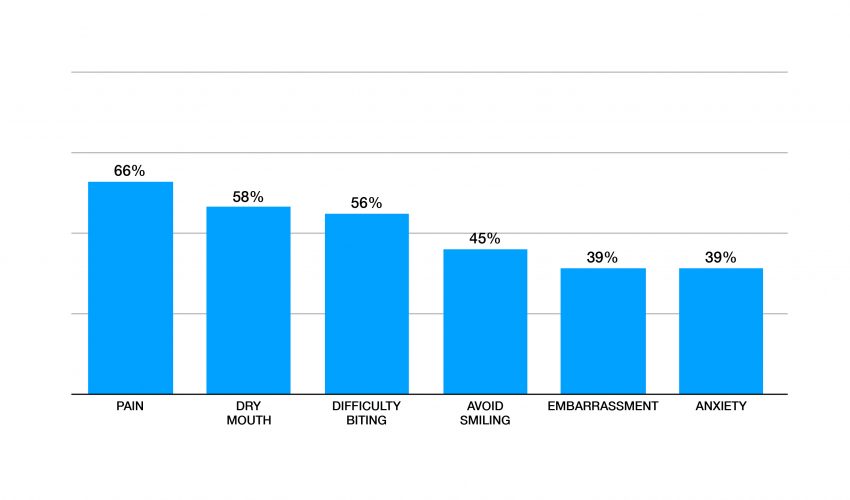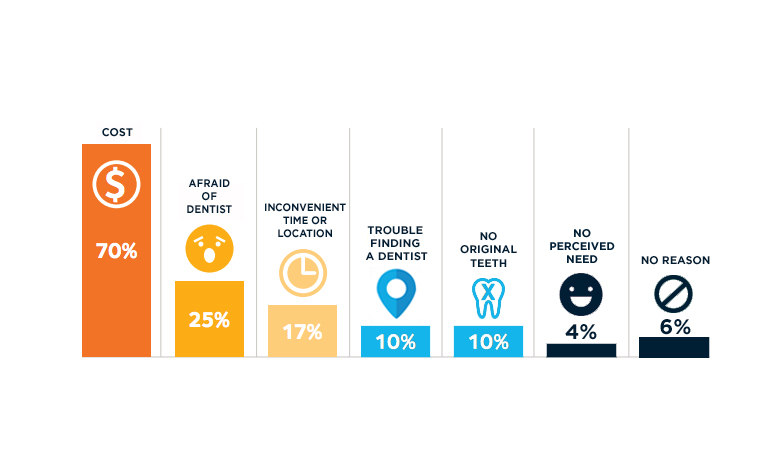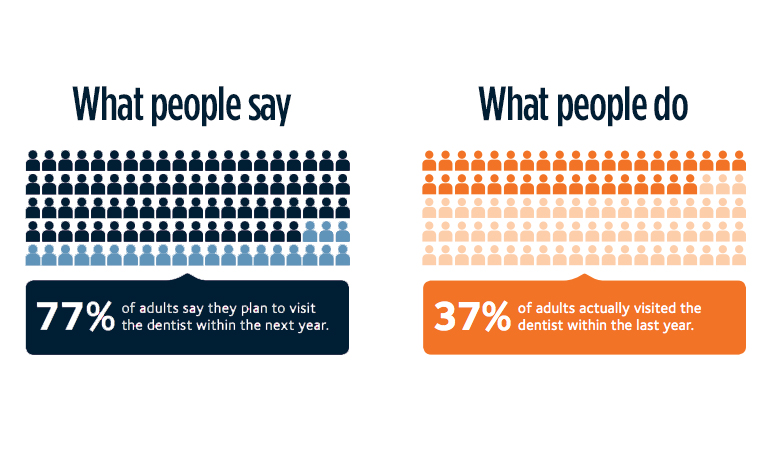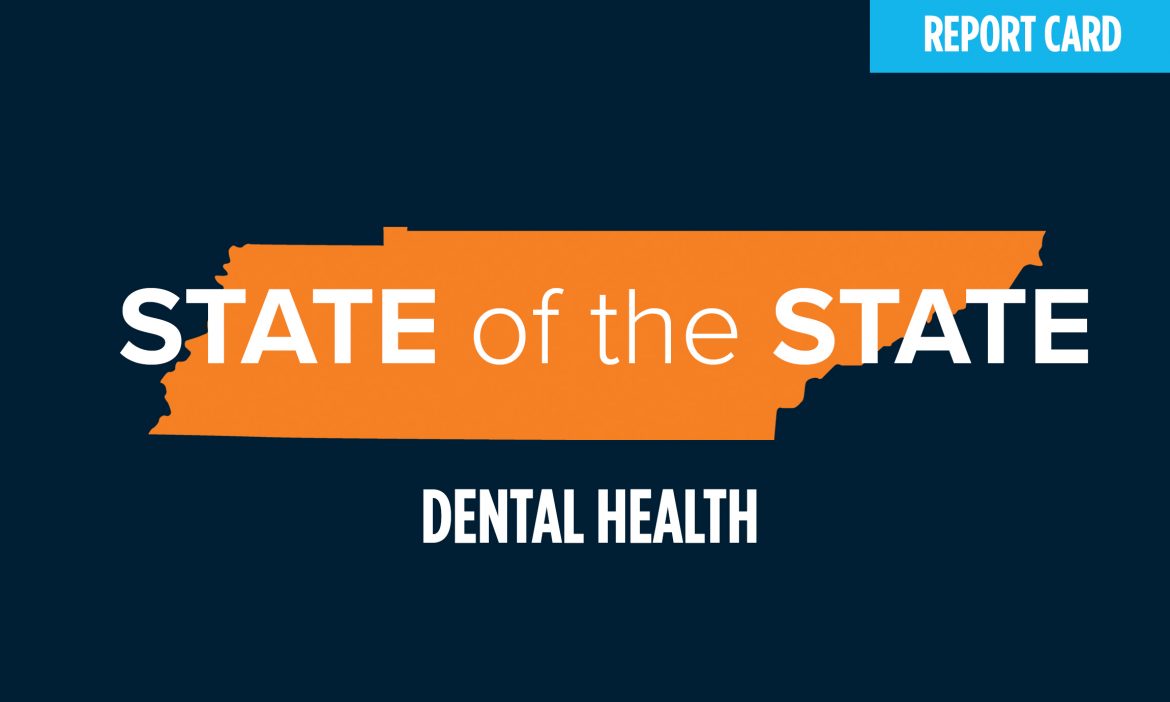Tooth decay is one of the most common health problems in the U.S.
By age 34, more than 80% of people have had at least one cavity.
It’s an especially big problem in Tennessee, which ranks 38th for dental health in the nation.
Why dental health matters
Oral health matters because:
- Decay is often linked to other chronic diseases such as diabetes, heart disease, stroke, dementia, obesity and low birthweight for babies
- People with poor oral health often struggle with tobacco use, substance abuse and consumption of food and drink with high levels of sugar
- It plays a key role in a person’s quality of life and self-esteem
- It impacts attendance and performance at school or work
- It causes disability
The Tennessee Department of Health identified 4 factors that drive all 10 of our leading causes of death in Tennessee.
They are:
- Smoking
- Obesity
- Physical inactivity
- Substance abuse
Dental health is connected to all 4.
Tobacco use, in particular, is the cause of 75-90% of oral cancers. More than 22% of adults in Tennessee smoke, as well as nearly 10% of high school students.
Does dental health matter to Tennesseans?
Yes.
- 95% of Tennesseans value oral health and agree regular dental visits keep them healthy
- 90% believe straight, bright teeth help you get ahead in life
Yet there are fewer dentists serving patients in Tennessee.
While there are 60 dentists for every 100,000 people in the U.S., there are only 50 per 100,000 in Tennessee.Does where you live play a role in dental health?
Yes, poor oral health is a significant issue in rural communities.
While 93% of people living in rural areas accept that oral health is important, 40% don’t brush their teeth at least once daily, and 70% do not floss.
In some areas of Appalachia:
- People have higher rates of oral disease than their urban counterparts
- There are only 4 dentists per 100,000 people compared to the U.S. average of 61 dentists per 100,000
- Among those who have not seen a dentist in more than 2 years, 70% say cost or lack of insurance are the reasons
While recruiting medical professionals to distressed regions can be difficult, the number of dentists practicing in Appalachia has increased in recent years.
What are the most common dental health problems?
The most commonly reported problems include:
- Pain 66%
- Dry mouth 58%
- Difficulty biting or chewing 56%
How does dental health affect confidence?
Up to 40% of low- and middle-income Tennesseans say life is less satisfying due to the condition of their mouth and teeth.
In Tennessee, 45% of the population reports that they have avoided smiling at some point during the last year due to the condition of their teeth.
- 23% of adults feel embarrassment about their mouth
- 20% experience anxiety related to their oral health
- Studies show most employers “make instant judgments based on appearance, including one’s smile and teeth.”
- A 2008 study found that people with missing front teeth were viewed as less intelligent, less desirable and less trustworthy than people with a healthy smile.
Top dental problems as reported by Tennesseans

Graphic adapted from ADA
Does income affect dental health in Tennessee?
Yes, the higher your income, the more likely you are to have healthy teeth and good dental habits.
However, dental health affects people at all income levels:
- 38% of high-income adults experience pain
- 22% of middle-income adults feel embarrassment
- 18% of low-income adults reduce participation in social activities due to poor oral health
How substance abuse plays a part
In Tennessee, drug overdose deaths are increasing, and 72% of those deaths involve opioids. Prescription drug abuse has impacted and complicated dentistry because professionals must balance providing pain relief for their patients while minimizing the potential for abuse.
Why we don’t go to the dentist
- 70% of people cite cost as the top reason
- 25% report being afraid of the dentist

In rural areas, symptoms such as pain or difficulty chewing are often ignored, and this slow onset of symptoms can lead oral cancers to progress further before diagnosis.
Often people intend to go to the dentist but don’t end up making an appointment.

How do Tennesseans feel about dental health as they get older?
56% of Tennesseans accept that they will lose some teeth as they age , which includes:
- 66% of low-income adults
- 42% of high-income adults
Solutions
Tennessee has created an oral health improvement plan that focuses on 4 key areas:
- Monitoring
- Education and advocacy
- Prevention
- Resources and workforce
One key part of the plan is the School Based Dental Prevention Program (SBDPP) which operates in public schools where at least 50% of the students receive free and reduced lunch. It targets children kindergarten through 8th grade and has been responsible for placing more than 4 million sealants on children’s teeth.
Community water fluoridation also plays a role as the most effective, economical way to prevent tooth decay.
- Historically, Tennessee led the way with 95% of the population receiving fluoridated water in 2004.
- Due to misinformation, many local systems have chosen to discontinue water fluoridation, and now that percentage has dipped to 88%.
A 15-week campaign in the Tennessee-Kentucky-Virginia tristate area also successfully decreased daily consumption of sugary beverages from 57% to 49% of the population.



